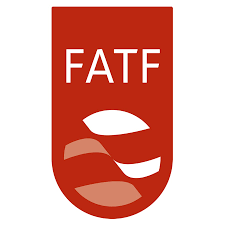Public Accounts Committee under scrutiny
Corruption-tainted lawmakers assigned to probes; profitable firms targeted by vested interests

KATHMANDU, APRIL 6: The Public Accounts Committee (PAC) appears to be undermining its own credibility by appointing subcommittees led by lawmakers with a history of corruption allegations and controversial backgrounds. These subcommittees have been assigned to investigate complaints lodged against certain companies. Since attending subcommittee meetings also brings allowances, many Members of Parliament (MPs) are reportedly targeting specific industries for personal gain.
The committee has selectively focused on certain companies while disregarding the need to investigate others, even when their actions have caused public concern. Ironically, strong and well-performing companies are being subjected to investigations, while weaker and more controversial ones are being ignored altogether.
In its meeting on March 21, the committee formed subcommittees to investigate companies such as Reliance Spinning Mills, Annapurna Cable Car, and Sarbottam Cement. However, it has shown no interest in probing companies like Republic Media (publisher of Nagarik Daily) or Ghorahi Cement—both of which issued IPOs at inflated prices and caused losses to the general public.
Why Is Gokul Baskota on the committee?
The PAC, which is supposed to promote good governance, now seems to be enabling bad governance. The committee appointed Gokul Baskota, who has been accused in a Rs. 700 million bribery scandal, as the coordinator of a subcommittee. He has been tasked with leading studies on economic matters, illegal insurance practices, mobile banking, and the MCC (Millennium Challenge Corporation) agreement.
Critics argue that appointing a lawmaker facing serious corruption allegations as a subcommittee coordinator reeks of backroom deals and financial motives. Baskota reportedly lacks the qualifications to understand complex processes such as book building and valuation of companies. Despite regulatory approval from auditors, rating agencies, and the Securities Board, as well as the green light from the CIB, Patan High Court, and the Finance Committee, the PAC continues to obstruct their work under various pretexts.
Business insiders claim this is a deliberate attempt to pressure companies or delay proceedings until certain “interested parties” can negotiate financial deals or seek cuts. They say the system itself is being mocked.
A greedy eye on a well-performing company
Reliance Spinning Mills has consistently shown strong financial performance, especially when compared to many other companies. It has been operating profitably for the past 30 years and has made significant contributions to exports and employment. Despite its track record, certain individuals have been dragging the company into controversy by filing repeated complaints from different fronts. However, courts have consistently dismissed such cases, refusing to entertain them.
In addition, anti-corruption bodies like the Commission for Investigation of Abuse of Authority (CIAA) and most regulatory agencies have already given Reliance a clean chit. Despite this, the PAC seems to be working in coordination with certain individuals to target the company for narrow interests. Harassing a clean company with established credibility raises serious concerns.
Reliance had applied for an IPO in 2021 and received approval only in 2024. Even after receiving Qualified Institutional Investor (QII) funding, the company claims it did not misuse the funds and instead kept them in fixed deposits. Financial statements reveal that Reliance is operating through its own reserves, increasing both production and profits. It has also invested in a rooftop solar plant through its own reserve capital.
Reliance has long stated that the funds raised from the IPO would be used to expand its capacity. However, due to the lack of understanding among decision-makers and regulators, the company, despite being fully capable, faced unnecessary delays in getting IPO clearance. Even after receiving clean chits from the CIB and courts, the PAC has unnecessarily dragged Reliance into another round of investigation under the guise of a “study.”
The committee continues to form subcommittees rapidly, as each meeting also brings allowances for its members. This pattern suggests the PAC may be more focused on allowances than accountability.
By acting in favour of vested interest groups under the influence of financial incentives, the committee risks damaging not just individual companies, but the integrity of the entire state apparatus.

Nepal begins preparations to exit FATF grey list

MG Motors Nepal launches MGS5 EV in Butwal and Bhairahawa

Health insurance covers 49 per cent population in Gandaki

Dr. Neelam Dhungana Timsina appointed acting governor of NRB

Electric SUV boom in Nepal

International Transport Conference on April 11-13

Government’s health insurance liabilities soar to Rs 16.45 billion



Feedback